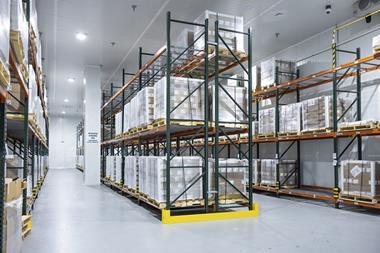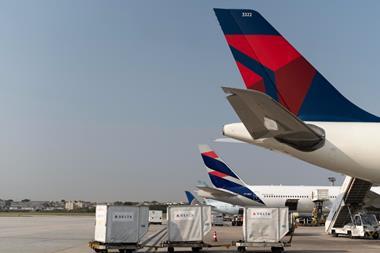Global demand for life sciences will fuel a 60% growth in temperature controlled logistics to $13.4bn by 2020, according to new research by DHL Global Forwarding.
The logistics giant also warned of the need for “smarter cold chains”, with global spending on healthcare set to reach $1.3tn by 2018.
The research highlights the critical need for next generation cold chains – possessing “a specialised and compliant network, globally consistent processes, risk appropriate packaging and total cost strategy”.
DHL’s white paper, The Smarter Cold Chain, identifies the critical challenges facing the healthcare industry as global demand grows for “expensive structurally complex and temperature-sensitive biologics and specialty drugs”.
“Astounding developments in the life sciences industry coupled with globalisation means there is an opportunity for better health, pain relief and cure from disease for many millions of people around the world,” said Frank Appel, chief executive of Deutsche Post DHL Group.
“But getting the medication to patients in the right condition and achieving that goal requires a complex balancing of cost and risk. It emphasizes yet again the strong link between trade, logistics and the impact it has on improving people's lives.”
This latest report was published during DHL’s 15th Global Annual Life Sciences & Healthcare conference, held in Hamburg, Germany.
Global spending on healthcare is forecast to reach around $1.3trn by 2018 and the World Economic Forum estimates that by 2020, one third of all global health expenditure will be in emerging markets.
Specialty drugs and biologics are one of the fastest growth areas with US spending on specialty drugs to quadruple to $401.7bn in five years, according to PricewaterhouseCoopers, with similar growth rates being projected for the rest of the world.
The study showed that highly sensitive pharmaceuticals bring new complexity to the supply chain since they have specific condition tolerances and a high value. Annual per-patient treatment costs can be above $100,000, making a single consignment worth up to $50m.”
Angelos Orfanos, president life sciences & healthcare, DHL customer solutions & innovation, said: “Collapsed cold chains due to non-appropriate conditions can result in loss of a shipment worth hundreds of thousands of dollars. Over the longer term, this can lead to a damaged reputation, slumping sales, potential share value and even pose a risk to patients.
“These are high stakes and a smarter supply chain is necessary to overcome these challenges.
He added: “As the life sciences and healthcare industry expands and transforms to meet the growing needs of the world, logistics providers need specialist investment in research and development as well to be able to offer the expertise needed to get medicine and equipment to the patients.
"In the simplest terms: better logistics can contribute to better healthcare.”
Air Cargo News is hosting its second Life Sciences and Pharmaceuticals Conference in December 2015. Click here for more details.










